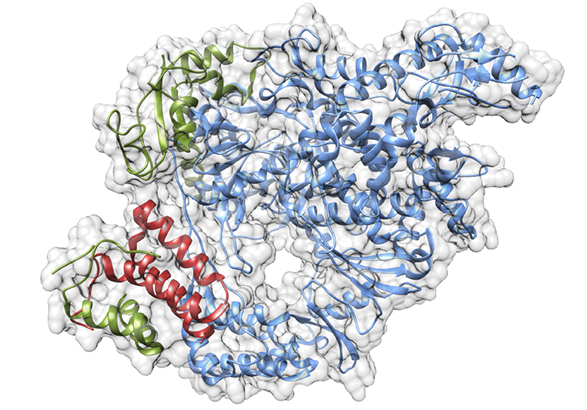THE University of Huddersfield has awarded funding to a research team that aims to provide a head start in developing drugs that will combat future pandemics.
Equipped with newly-acquired software, the project will carry out computational analysis of the structure of some of the proteins that are involved in SARS-CoV-2, the virus that causes COVID-19. This greater understanding can open the way to drug development, said Dr Chris Cooper, a senior lecturer in the University's Department of Biological and Geographical Sciences.
Study Biological Sciences at Huddersfield
"There are a lot of similarities between SARS-CoV-2/COVID-19 and the last SARS [severe acute respiratory syndrome] virus," he continued. "And as future pandemics may involve other coronaviruses, if we understand their biology in advance and if it has similar proteins, that means it may actually give us a head start.
"If you understand the biology you can potentially have additional lines of attack for future pandemics."
The University of Huddersfield has established a "pump priming" research fund for projects dealing with the current pandemic. Dr Cooper is the academic lead for the project titled SARS-CoV-2 in silico protein modelling and determination of novel therapeutic drug candidates to treat COVID19.
His collaborators are departmental colleagues Dr Richard Bingham, Dr Patrick McHugh, of the University of Huddersfield's Department of Pharmacy, and Dr Ed Bolt, of the University of Nottingham.
Their bid for funding was successful and has enabled the purchase of ICM Pro software that helps to predict and analyse the structure of proteins. When the University of Huddersfield's labs are re-opened, the team can deploy X-ray crystallography approaches to gain greater understanding of the biological science behind the virus.
When SARS was topical some 17 years ago, there was scientific interest in analysing its biology, said Dr Cooper. As a virus, it was in many respects more lethal than COVID-19, but because it didn't spread as widely as SARS-CoV-2, interest waned.
"From a pure science background it was interesting, but before the SARS epidemic it would have been what's called blue skies research - good to do but not urgent. But events have shown that blue skies research could have been very important back then."







